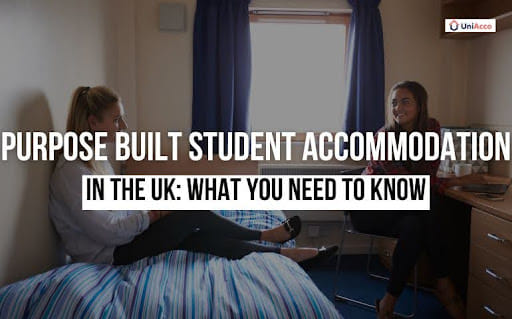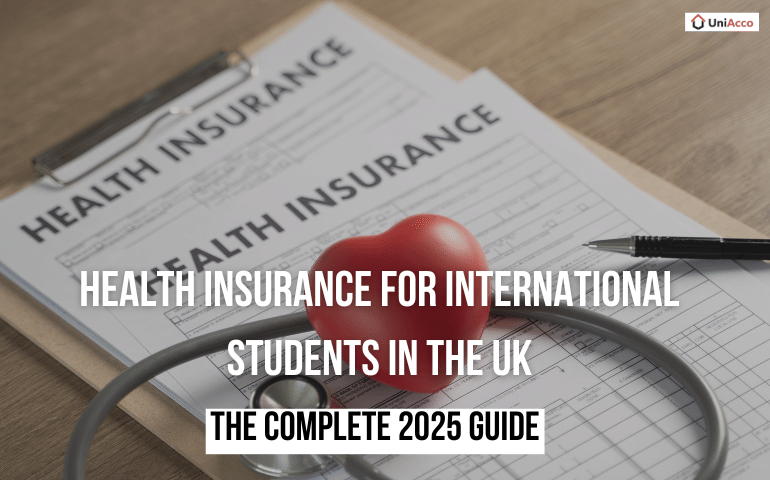Studying abroad is an adventure of a lifetime, filled with excitement, new experiences, and personal growth. However, before you embark on this journey, there’s one crucial step: preparation. Packing the right stuff, understanding the requirements, and being mentally ready can make all the difference between a smooth transition and a chaotic one.
Here’s an ultimate checklist for students studying abroad to ensure you’re well-prepared for this incredible journey.
Things To Pack:
- Passport and Visa
This document is so powerful you cannot enter the airport without it, let alone another country. Your passport and the country-specific visa are your identity in a new land, so it is undeniably the first thing to carry with you before you move on to anything else. Treat this as a crucial checklist for students studying abroad, as missing out on it can put a full stop to your dreams.
It is always considered a great idea to carry copies of your passport and even your visa, and store it in different compartments of your bag. Electronic copies can be stored in USB or email attachments. This will make replacing your passport and the visa at the American consulate easier if you ever do lose your passport.
- Important Documents
Your passport is undoubtedly the most critical piece of identification for your study abroad.
However, you will quickly realise that having your passport on you was just the tip of the iceberg. To make your journey hassle-free, ensure you have all the necessary documents from your study abroad checklist before departure.
Documents to keep in your carry-on:
- Passport (plus extra copies of passport photos)
- Printed copy of your student visa
- Birth certificate (copy)
- FBI background check (if applicable)
- Local and international driver’s license
- University enrollment confirmation, acceptance letter, or programme verification
- Housing contract
- University transcripts
- Electronic Travel Authorisation (if needed)
- Proof of medical and travel insurance
- Contact details for embassies/consulates
- Emergency contact list
- Health records: vaccination certificates and medical history copies
- Travel itinerary: flight tickets and hotel reservation details (if applicable)
- Bank statements (to show proof of funds if required)
- Digital Copies of essential documents
- Google Document with Contact details, Emergency numbers and Addresses
- Communication Apps for messaging or online calling
Make photocopies of all these documents and upload them to cloud storage as a backup. Store copies in separate areas of your luggage for added security. Additionally, place an identification document on top of your check-in luggage in case its tag gets lost during transit.
- Medical Prescriptions and First-Aid Kit
No one expects medical emergencies while studying abroad, but having an SOS in your packing list for international students ensures you’re prepared for the unexpected.
Items to include in your first aid kit:
- Bandages of various sizes (including larger ones that can be cut to fit)
- Wound dressings in assorted sizes
- Antibacterial wipes
- Cotton swabs and cotton wool
- Medical tape
- Tweezers
Additionally, pack over-the-counter medications such as pain relievers, antihistamines, antibiotics, and anti-diarrheal tablets. If you take prescription medications, ensure your study abroad checklist includes enough supplies for your stay. While foreign pharmacists may not honor prescriptions from your home country, carrying a copy of the prescription can help local doctors assist you if needed.
- Local Currency
While credit or debit cards are often the easiest way to access funds abroad, having some local currency on hand is essential for situations where cards aren’t accepted.
Tips for handling foreign currency:
- Carry enough cash to cover initial expenses like transportation or meals during your first few days.
- Exchange currency at your local bank or an airport kiosk before departure.
- Always keep some foreign cash in your wallet as a backup for emergencies.
- Essential Toiletries
When packing toiletries for your trip, include all essentials to stay fresh and confident. A well-prepared checklist for students studying abroad ensures you don’t miss anything important.
Must-have toiletries:
- Shampoo and conditioner
- Body wash/soap
- Toothbrush and toothpaste
- Hairbrush/comb
- Deodorant
- Sanitary items (for women)
For eco-conscious travelers, consider swapping traditional products for sustainable alternatives:
Sustainable swaps:
- Shampoo bars instead of bottled shampoo
- Soap bars instead of liquid body wash
- Bamboo toothbrushes instead of plastic ones
- Toothpaste tablets instead of tubes
- Reusable menstrual cups instead of disposable sanitary items
Pack specialty items like insect repellent, sunscreen, or contact lens solution as needed—they may be expensive or hard to find in certain countries. If unsure about available toiletries in your host country, consult with your study abroad coordinator beforehand.
- Power Adapters and Converters
Staying connected while studying abroad requires keeping devices charged—but not all countries use the same electrical systems.
Research the plug types and voltage standards of your destination before departure. Additionally, pack a reliable power bank or portable solar charger as a backup during power outages or long travel days.
- Essential Contacts & Communication Tools
- Keep Important Contacts Handy: Create a Google Doc with all essential phone numbers, addresses, and emergency contacts. This ensures you have quick access to vital information anytime.
- Download Communication Apps: Install messaging and online calling apps like WhatsApp or Skype to stay connected with family and friends over Wi-Fi, saving on roaming charges.
No study abroad checklist is complete without a “what not to”, isn’t it? Here’s a list of what not to pack on your study abroad experience.
What Not To Pack:
When preparing for your study abroad adventure, it’s just as important to know what not to bring as it is to know what essentials you need. Avoiding unnecessary items will help you save space and weight in your luggage. Here’s a list of things you should leave behind:
1. Excessive Food and Snacks
While it might be tempting to bring a stash of your favorite snacks from home, packing too much food can take up valuable luggage space. A few treats are fine for sharing with new friends, but consider exploring local cuisines instead.
2. Books
If you love reading, it may be hard to leave your collection behind, but books are bulky and heavy. Instead, consider using an e-reader or borrowing books from local libraries during your stay.
3. Too Many Electronics
Limit the number of electronic devices you bring with you. Essentials like a laptop and smartphone are necessary, but additional gadgets can increase the risk of theft and complicate your travel experience.
4. Bedding
While your favorite pillow may bring comfort, bedding takes up significant space in your luggage. It’s better to buy bedding once you arrive in your host country.
5. Valuables and Luxury Items
Leave behind expensive jewelry or luxury items that could be lost or stolen. Instead, opt for affordable yet functional alternatives that won’t cause distress if misplaced.
6. Culturally Inappropriate Items
Be mindful of cultural sensitivities in your host country. Avoid clothing or items that may be deemed offensive or inappropriate, as they can misrepresent you and your home country.
The ultimate packing list for international students is a collection of highly crucial stuff, such as your documents and electronics, as well as the don’ts that help you understand the culture and make informed decisions before flying. The rest that follow support the complete experience, preparing you to take on new people, cultures and a new identity.
We’re just as excited as you are! Studying abroad has its challenges, but with the right approach, it can be a seamless and rewarding experience. We’re here to check off one of the essentials of your study abroad checklist: Accommodation. UniAcco is your answer to landing great student accommodation deals and exclusive stays if you book now. Don’t sit on it too much, make the first move now.
FAQs
1. What do study abroad students need?
The study abroad checklist contains essential documents such as a valid passport, student visa, and university enrollment confirmation. Additionally, they should prepare health records, proof of funds, and travel insurance to ensure a smooth transition to their new environment.
2. What is the checklist for students studying abroad?
Here’s a concise checklist for students studying abroad:
- Essential Documents: Passport, visa, university acceptance letter, health insurance, financial proof, and travel itinerary.
- Packing Essentials: Local currency, prescription medications, universal adapter, clothing suited to the climate, and toiletries.
- Tech & Accessories: Laptop, chargers, reusable water bottle, and a quality backpack for daily use.
3. How much luggage is allowed on international flights for students?
Most airlines allow students 23–30 kg of checked baggage and 7–10 kg of carry-on luggage. Some airlines offer extra allowances for students with valid ID or proof of enrollment.
4. What not to pack when studying abroad?
Avoid excessive food, heavy liquids, bulky books, multiple electronics, bedding, valuables, culturally inappropriate clothing, too many shoes, hair appliances, and unnecessary toiletries.
5. What documents are checked at the airport for international students?
Key documents include your passport, student visa, proof of enrollment (e.g., I-20 or acceptance letter), financial proof, travel itinerary, and health-related certificates (if required). Always carry these in your hand luggage for easy access
We hope we can help you with this ultimate checklist for students studying abroad. If you want to know more about settling in and the ways of life at your chosen destination, we recommend the articles below:















0 Comments